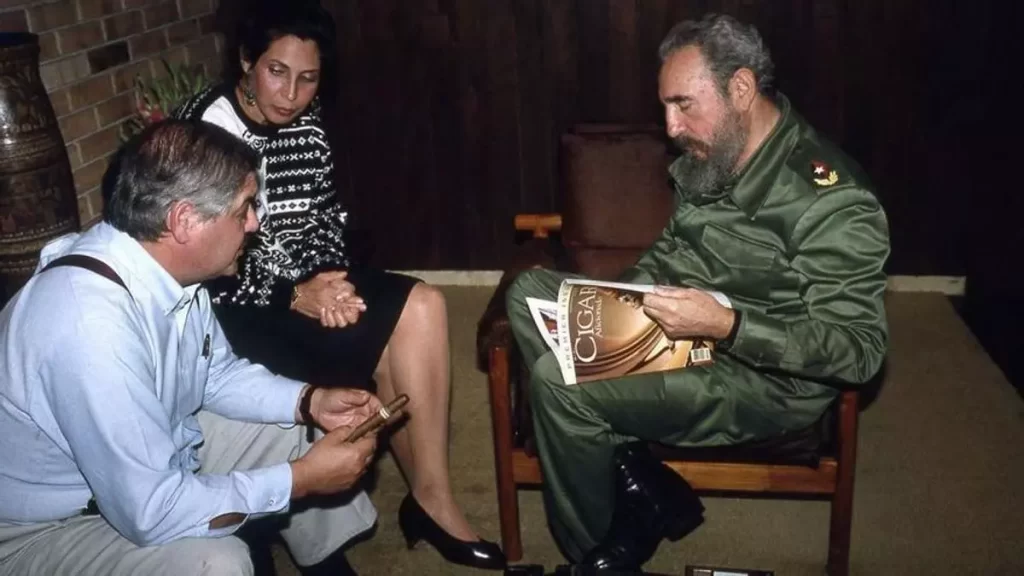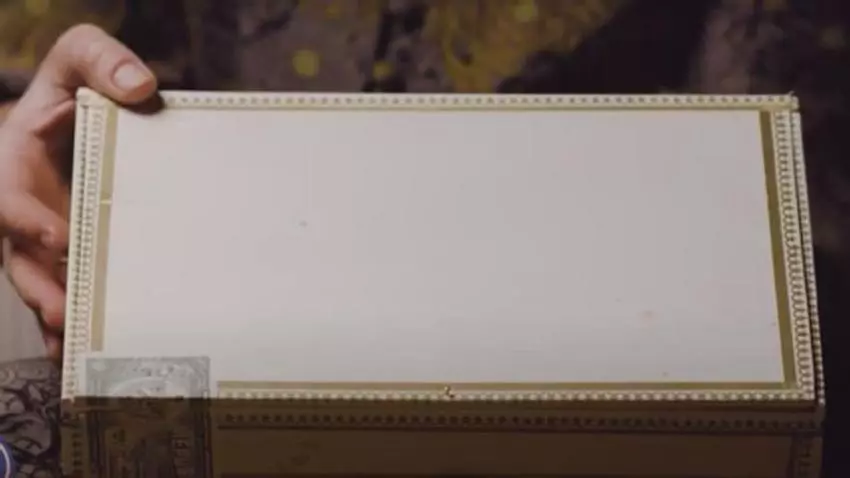A documentary by specialist Kirby Allison reveals details and curiosities of “the Commander’s favorite tobacco”

![]() 14ymedio, Juan Izquierdo, Havana, 18 June 2024 — In 1994, Fidel Castro gave an interview to the American Marvin Shenken, editor of the prestigious Cigar Aficionado magazine. “We know that there is a cigar called Trinidad and that it is only obtained in Cuba as a gift,” he said bluntly. According to rumors, the brand had been secretly manufactured since 1969 without a band, but Castro had denied its existence several times. With a smile, his answer was: “I don’t know what you’re talking about.”
14ymedio, Juan Izquierdo, Havana, 18 June 2024 — In 1994, Fidel Castro gave an interview to the American Marvin Shenken, editor of the prestigious Cigar Aficionado magazine. “We know that there is a cigar called Trinidad and that it is only obtained in Cuba as a gift,” he said bluntly. According to rumors, the brand had been secretly manufactured since 1969 without a band, but Castro had denied its existence several times. With a smile, his answer was: “I don’t know what you’re talking about.”
That year, during the so-called Dinner of the Century – a luxurious banquet of millionaires held in Paris while Cubans went hungry in the Special Period – several boxes of Trinidad with the signature of Castro were officially auctioned, which were served after the meal with a 1982 Château Mouton Rothschild wine.
Born to dethrone the Cohiba, the story of how the “Commander’s favorite cigar” began to be sold was revealed by David Savona, current director of the magazine, to the specialist Kirby Allison during a miniseries about the brand that has just been uploaded to YouTube. In 1991, Shenken made a trip to Cuba on the trail of the Trinidad. He was about to publish the first issue of Cigar Aficionado magazine, and no one wanted to give him information about the “best kept secret” of the Island
“We were all a family. We thought the same thing: we all wanted to make a cigar for Fidel.”
He had to settle for a small article, which was enough to whet the appetite of the millionaires. When the terrain was prepared and everyone wanted to smoke a Trinidad, Castro admitted that the cigars existed and that they were for sale.
Ultimately, the Trinidad failed to dethrone the Cohiba, which is still the best-selling cigar on the Island. But the state corporation Habanos S.A. does not give up: Allison’s series is part of a promotion package, with new cigar bands and tools of the trade, in tribute to the 55th anniversary of the brand.
For Allison, if Cohiba is the flagship of Cuban cigars after 1959, Trinidad is the “special jewel in the crown” for its “unparalleled mystical aura.” The golden cigar with a blue band was given to diplomats and ordinary guests, but the triple T was reserved for very high officials, who were required not to disclose their consumption beyond the “corridors of diplomacy,” says the expert.
Trinidad, the Cuban city that the brand evokes, is for Allison the summary of everything the tourist seeks: colonial architecture, the convergence between Spaniards, Africans and “natives” and quality tobacco, whose cultivation method was perfected by Canarian immigrants in the central provinces of the Island.
The series points to the utmost secrecy in which Castro maintained the El Laguito factory since 1959, where the Trinidad and the Cohiba are manufactured. The president, he believes, “gave the diplomats the opportunity to show Cuban cultural wealth to the world.” Juana Ramos Guerra, one of the first cigar rollers of the factory, explained to Allison that all the employees entered the factory thanks to a family tie with the regime, since it was Celia Sánchez who was in charge of the selection process in 1972.

“The cigar that was made here was the one made for Fidel,” Ramos adds. “We were all a family. We thought the same thing: we all wanted to make a cigar for Fidel.”
The greatest tribute that Ramos received from his bosses had to do with the Trinidad: the best cigars of the brand came out of his hands in 1998. The Trinidad, he recalls, “was the cigar that Fidel gave to presidents and important people who came to Cuba. It had no mark or bands, it was very simple but very tasty. Everyone wanted Fidel to give him one.”
The person who received the cigar found out from Castro what kind of cigar he was smoking, so that if the specimen left Cuba, no external sign would reveal it. “The Trinidad is our ambassador to the world,” says Ramos. By 2003, the brand had expanded to create new shapes and calibers: Founders, Colonials, Kings, Robusto Extra.
The worldwide relaunch of the brand took place in London that year, sponsored by Hunters & Frankau. Now, two decades later, Habanos has declared a “Trinidad tasting time,” with tastings in several places, so that millionaires can get excited again about cigars and their new brand, Cabildo, whose name evokes the relationship between tobacco and the “primary forms of government” of the colonial era. A link that recalls the principle formulated by Fernando Ortiz: “Whoever rules in Cuba, rules in cigars.”
Translated by Regina Anavy
____________
COLLABORATE WITH OUR WORK: The 14ymedio team is committed to practicing serious journalism that reflects Cuba’s reality in all its depth. Thank you for joining us on this long journey. We invite you to continue supporting us by becoming a member of 14ymedio now. Together we can continue transforming journalism in Cuba.
